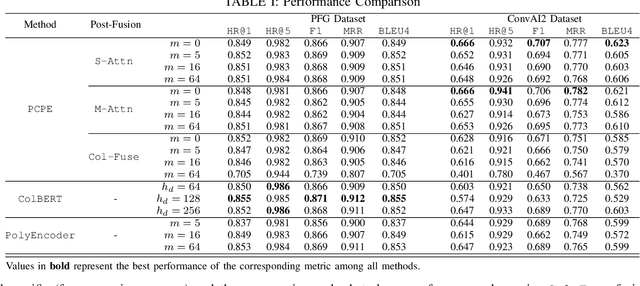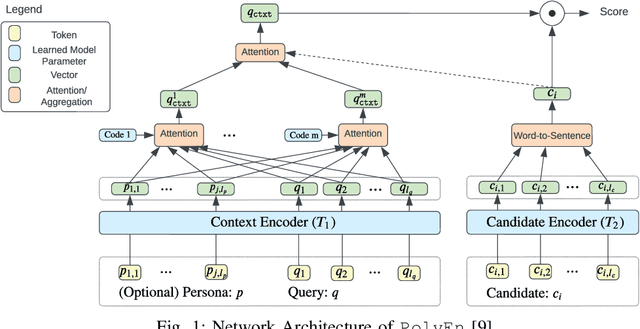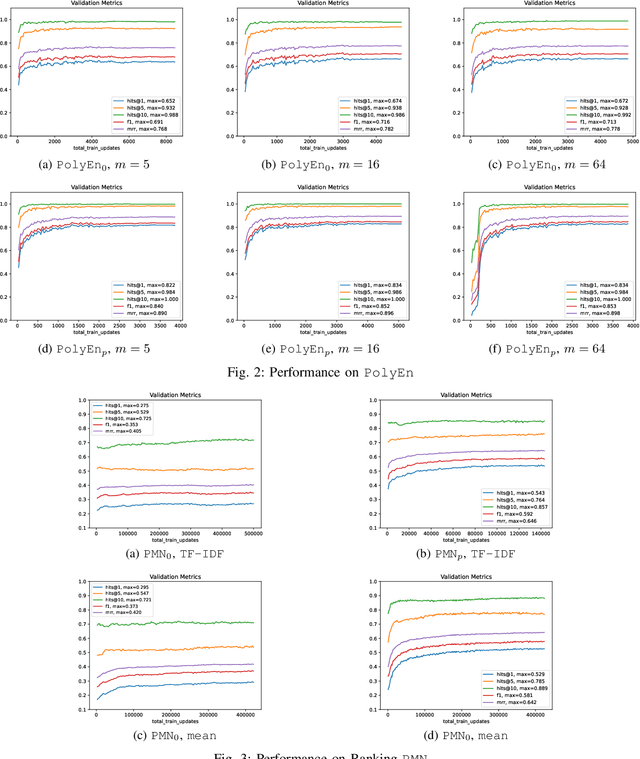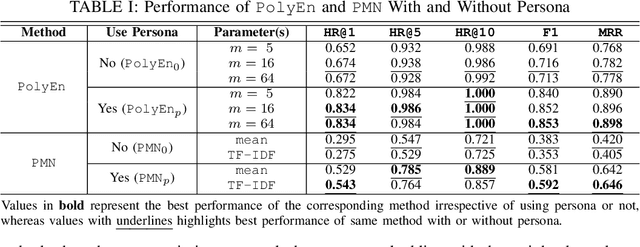Christopher Symons
Persona-Coded Poly-Encoder: Persona-Guided Multi-Stream Conversational Sentence Scoring
Sep 28, 2023

Abstract:Recent advances in machine learning and deep learning have led to the widespread use of Conversational AI in many practical applications. However, it is still very challenging to leverage auxiliary information that can provide conversational context or personalized tuning to improve the quality of conversations. For example, there has only been limited research on using an individuals persona information to improve conversation quality, and even state-of-the-art conversational AI techniques are unable to effectively leverage signals from heterogeneous sources of auxiliary data, such as multi-modal interaction data, demographics, SDOH data, etc. In this paper, we present a novel Persona-Coded Poly-Encoder method that leverages persona information in a multi-stream encoding scheme to improve the quality of response generation for conversations. To show the efficacy of the proposed method, we evaluate our method on two different persona-based conversational datasets, and compared against two state-of-the-art methods. Our experimental results and analysis demonstrate that our method can improve conversation quality over the baseline method Poly-Encoder by 3.32% and 2.94% in terms of BLEU score and HR@1, respectively. More significantly, our method offers a path to better utilization of multi-modal data in conversational tasks. Lastly, our study outlines several challenges and future research directions for advancing personalized conversational AI technology.
Persona-Based Conversational AI: State of the Art and Challenges
Dec 04, 2022


Abstract:Conversational AI has become an increasingly prominent and practical application of machine learning. However, existing conversational AI techniques still suffer from various limitations. One such limitation is a lack of well-developed methods for incorporating auxiliary information that could help a model understand conversational context better. In this paper, we explore how persona-based information could help improve the quality of response generation in conversations. First, we provide a literature review focusing on the current state-of-the-art methods that utilize persona information. We evaluate two strong baseline methods, the Ranking Profile Memory Network and the Poly-Encoder, on the NeurIPS ConvAI2 benchmark dataset. Our analysis elucidates the importance of incorporating persona information into conversational systems. Additionally, our study highlights several limitations with current state-of-the-art methods and outlines challenges and future research directions for advancing personalized conversational AI technology.
 Add to Chrome
Add to Chrome Add to Firefox
Add to Firefox Add to Edge
Add to Edge